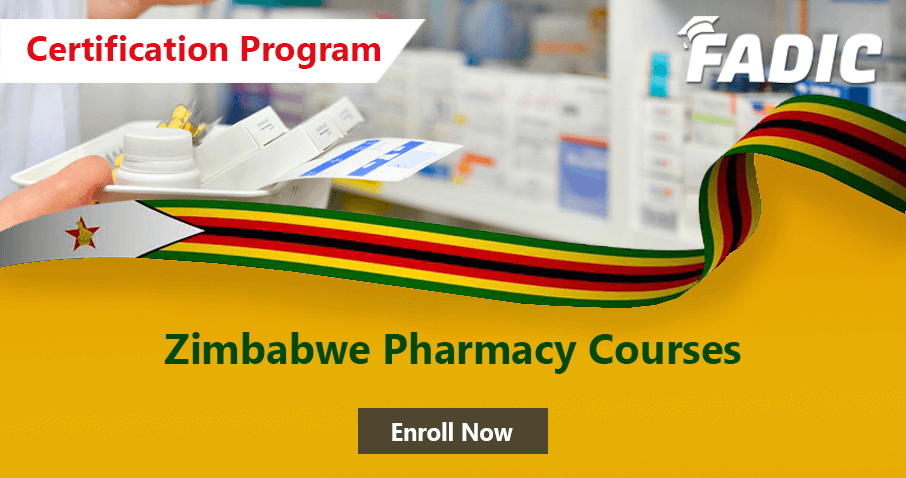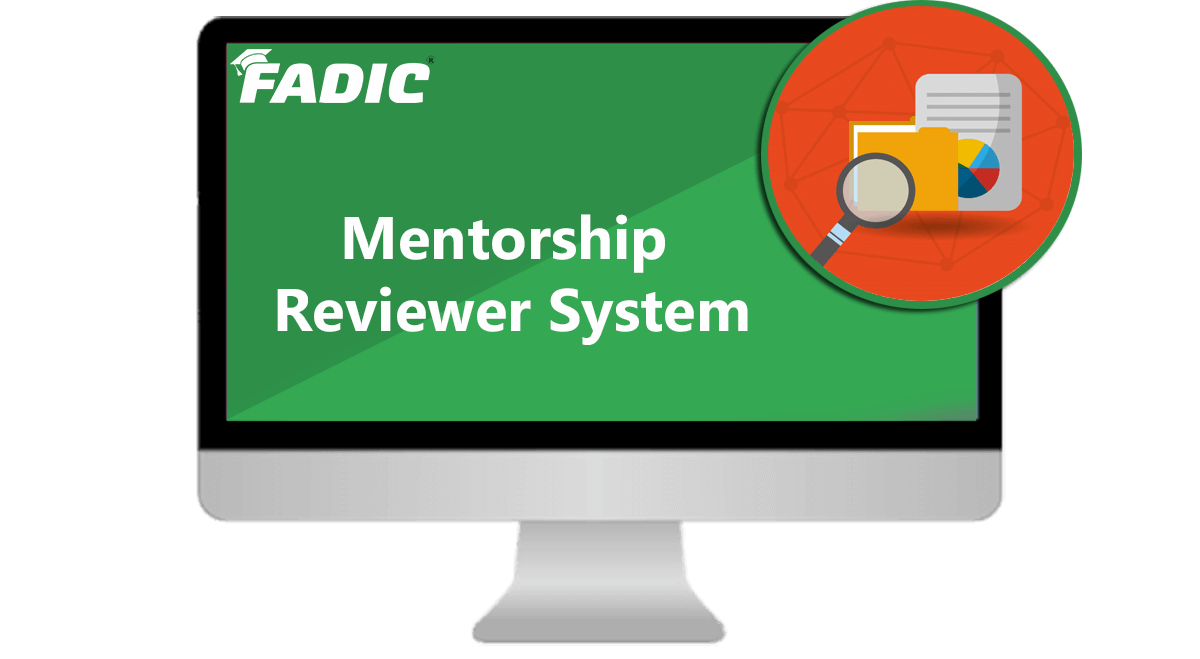
Upgrade Your Pharmacy Skills with the Essential Zimbabwe Pharmacy Course!
Join the Zimbabwe Pharmacy Course to boost your pharmacy skills easily! This training helps you get better at your pharmacy job with simple, understandable lessons. Learn new things, get a certificate, and make your work in healthcare even better. Sign up now and start learning in a friendly, helpful way. Your journey to becoming a great pharmacist starts here!
Overview
Zimbabwe Pharmacy Course
Pharmacy Training Course: Enhancing Healthcare OTC and Counseling Skills for Pharmacists
![]()
Introduction of Zimbabwe Pharmacy Course Certification:
- The Zimbabwe Pharmacy Course Certification is an esteemed training aimed at healthcare professionals.
- It improves your competency to deliver effective patient-centred counselling, ensuring the highest standard of care.
- This certification equips them with critical skills, fostering therapeutic relationships and promoting health literacy among patients.
Objectives of Zimbabwe Pharmacy Course Online Training Program
- Enhance healthcare professionals’ communication skills for effective patient counseling.
- Develop a patient-centered approach in delivering clear and accurate information.
- Address common patient concerns and inquiries through improved counseling techniques.
- Improve patient understanding, adherence, and overall healthcare outcomes.
- Provide comprehensive online training modules to enhance healthcare professionals’ counseling abilities.
Target Audience of Zimbabwe Pharmacy Course Online Training Program
- Pharm D, residency
- Bachelor Degree in Pharmacy
- Graduated pharmacists
- All Pharmacists (Hospital, Community, Retail and Clinical Pharmacists).
- Pharmacist Technicians
- Student Pharmacists (3rd, 4th and 5th year)
Curriculum of Zimbabwe Pharmacy Course Online Training Program
Week 1: Mastering Medicine Information Search for Enhanced Knowledge
- Develop advanced skills in searching and retrieving accurate and reliable medicine information.
- Enhance knowledge of different databases and electronic resources available for drug information search.
- Apply evidence-based techniques to evaluate the quality and relevance of medicine information.
- Underestand search strategies to optimise information retrieval from the electronic resources.
Week 2: Effective Healthcare Communication and Patient Counseling Guidelines
- Enhance patient counseling skills to effectively interact with patients and healthcare professionals.
- Learn patient-centered approaches to empower patients in their healthcare decision-making.
- Underestand the guidelines for effective patient counseling and resources.
- Explore the library for for patient counseling textbooks.
Week 3: Optimising Management of Chronic Disease Management for Better Patient Outcomes
- Understand the principles of pharmacotherapy in the management of chronic diseases.
- Learn strategies for individualising treatment plans based on patient treatment goals.
- Identify potential drug interactions, adverse effects, and monitoring parameters in chronic disease management.
Week 4: Focused Approach to CNS Diseases Management for Targeted Treatment
- Gain a comprehensive understanding of the pharmacotherapy approaches specific to the central nervous system.
- Identify commonly prescribed CNS medications and their indications, mechanisms of action, and side effects.
- Learn to apply evidence-based guidelines for the safe and effective use of CNS medications.
- Develop skills in patient monitoring and counseling for CNS medications.
Week 5: Understanding Pharmacokinetics and Dose Adjustment for Medication Optimisation
- Understand the principles of pharmacokinetics and its role in medication therapy.
- Learn about dose adjustment based on pharmacokinetic parameters, patient characteristics, and clinical cases.
- Explore the importance of individualised dosing for optimal therapeutic outcomes.
- Develop knowledge of drug-drug interactions, pharmacokinetic variability, and therapeutic drug monitoring.
Week 6: Pharmacokinetics and Pharmacodynamics Insights
- Gain a deep understanding of pharmacokinetics and pharmacodynamics interactions.
- Explore the relationship between drug concentration, receptor interactions, and therapeutic response.
- Understand the factors influencing drug absorption, distribution, metabolism, and excretion.
- Apply pharmacokinetic and pharmacodynamic concepts to optimise medication selection and dosing.
Week 7: Empowering Pharmacists as OTC Prescribers for Patient Care
- Familiarise pharmacists with the roles and responsibilities of being an OTC prescriber.
- Develop knowledge of the regulatory framework and guidelines for OTC prescribing.
- Understand the indications, contraindications, and appropriate use of OTC medications.
- Enhance counseling skills to provide appropriate recommendations and advice for OTC medications.
Week 8: Addressing Top Symptoms in the Pharmacy: Identification and Management
- Identify and differentiate common symptoms encountered in the pharmacy setting.
- Develop skills in assessing and triaging patients presenting with top symptoms.
- Learn evidence-based strategies for symptom management and appropriate referrals.
- Understand the role of the pharmacist in counseling patients clinics.
Week 9: Expert Insights into the Top 7 Respiratory Diseases Counseling
- Gain in-depth knowledge of the top 7 respiratory diseases commonly encountered in counseling clinic.
- Understand the pathophysiology, and clinical presentation of each respiratory disease.
- Develop counseling strategies for patients with respiratory diseases, including medication management and lifestyle modifications.
- Learn about treatment options, including pharmacotherapy, for respiratory diseases.
Week 10: Counseling Clinic Focus: Navigating Vitamin Supplements for Optimal Health
- Understand the role of vitamin supplements in promoting optimal health and wellness.
- Learn about different types of vitamin supplements, their indications, and potential benefits.
- Develop skills in assessing patient needs and providing evidence-based recommendations for vitamin supplementation.
- Address safety considerations, potential interactions, and appropriate dosing of vitamin supplements.
- Discuss some case study and how to provide consultation effectively.
Week 11: Journal Presentation: Sharing and Learning from Latest Research
- Learn effective strategies for presenting and discussing research findings from scientific journals.
- Enhance critical appraisal skills to evaluate the quality and relevance of journal articles.
- Develop presentation skills to effectively communicate research findings to colleagues.
- Gain insights from peer presentations and foster a culture of learning from the latest research.
Week 12: Clinical Application of Biostatistics: Data Analysis for Evidence-Based Practice
- Understand the application of biostatistics in clinical research and evidence-based practice.
- Learn basic statistical concepts, including data analysis and interpretation.
- Develop skills in interpreting research findings and applying statistical methods in healthcare practice.
- Enhance critical thinking abilities to assess the validity and reliability of research studies.
Week 13: Underestand the Phases of Clinical Trials: Understanding the Process
- Gain a comprehensive understanding of the different phases involved in clinical trials.
- Understand the resources of clinical trials.
- Identify the types of the study designs.
- Develop knowledge of interpreting clinical trial results.
Week 14: Medication Management and Use Strategies for Safe and Effective Treatment
- Develop skills in medication management to ensure safe and effective use of medications.
- Understand medication-related issues, including adverse effects, medication errors.
- Learn strategies for medication errors reporting according to CBAHI standards.
- Enhance knowledge of medication safety practices and quality improvement in medication use.
Enhance your learning with the FADIC Mentorship Reviewer System. A dedicated mentor will guide you through your projects and workshops, providing personalized feedback to help you succeed.
Maximize your learning with downloadable and printable FADIC handouts. Study effectively and independently at your own pace.
Stay Ahead with FADIC: 24-Month Access to All Updates and Course Materials

Stay updated with FADIC: Starting from your registration date, you will enjoy 24 months of full access to all course materials, including the latest updates and course content.
Program Director
Dr Rasha Abdelsalam is the CEO of FADIC. She is doing her PhD in Antimicrobial Stewardship Before and During the COVID-19 pandemic in the United Kingdom. She read more than 8,000 papers on Antimicrobial Stewardship. She was in Tanta university hospital, Egypt. In 2013, she received TQM from an American university, BCPS, CPHQ, and an M.Sc. in Clinical Pharmacy. She received certification from SIDP. She obtained the add qualification from the American Board in infectious disease. Led MM CBAHI Saudi accreditation. Established stewardship committee and implementation in MCH, Makkah, Saudi Arabia.Dr. Rasha Abdelsalam

She shared in-item exam writing for BCIDP Exam. She shared as a reviewer in infectious diseases PSAP, IDSAP, authorship of the ACCP Pharmacotherapy Mock Exam Book, and authorship published around 20 papers. One paper about the vision of 2030 of the general pharmaceutical department in Saudi Arabia. She received teaching and learning TLC certification from ACCP academy. Moreover, a consultant on personal, professional, stewardship leadership, and research. Share in strategic planning, hospital accreditation, and stewardship education in the united kingdom.
Read More
- Join FADIC School of Antimicrobial Stewardship
- Drug Information Fellowship
- Patient Counseling Clinic
- Medication Safety Program
- Clinical research Course
- Drug information program – 3 Months
- #SPLE #Pharmacy Course
- Basic & Advanced Level Antimicrobial Stewardship Program
- ALL FADIC Programs & Courses, stay updated with FADIC Programs.
- Podcast of FADIC, help you to learn from others experience in the clinical practice.
- FADIC Book Store
Hashtags
1. #patient educator, patient education and counseling, #ZimbabwePharmacyCourse, #PharmacyTrainingZimbabwe
2. #patient education, importance of patient education, #PharmacyEducationZW
3. #patient education examples, patient family education
4. #patient counseling, patient counseling by pharmacist
5. #patient counseling examples, counseling patient
6. #medication counseling, #ZimbabwePharmacists, #PharmacySkillsZimbabwe
7. #community pharmacy, #PharmacyCertificationZW
8. #role of pharmacist in community pharmacy, #ZimPharmacyProgram
9. #community pharmacist, #ZimbabweHealthcareEducation
If you have any inquiry, please contact WhatsApp.

-
Week 1: A Comprehensive Guide for Searching in Medicine Information
- Drug Information, and Electronic Resources
- FADIC Electronic Library
- FADIC Library for Medical Resources
- Understanding Clinical Questions
- Tips on Searching in the Medical Resources
- Types of Medical Resources
- Workshop 1
-
Week 2: Building Effective Healthcare Communication and Empowering Patients
- General Guidelines for Patient Counseling
- Patient Counseling Library
- FADIC Prescriptions – حمل الآن كتاب فادك للروشتات الطبية
- Medication Therapy Management (MTM)
- Comprehensive Medication Management (CMM)
- Black Box Warning Medications List
- OARS Model Essential Communication Skills
- Workshop 2
-
Week 3: Optimising patient care through Pharmacotherapy treatment planning in Chronic Diseases
- What is Pharmacotherapy?
- Heart Failure
- Anti-arrhythmia
- Coronary Artery Disease
- Dyslipidemia
- Hypertension
- Diabetes
- Pharmacotherapy in Special Populations
- Role of Pharmacist-led Pharmacotherapy
- Info-graphics
-
Week 4: CNS Pharmacotherapy
- General Communication Tips with CNS Disorders and Depression
- Insomnia Patient Counseling
- Anxiety Patient Counseling
- Headaches Patient Counseling
- Epilepsy Patient Counseling
- GAD & PD
- PTSD and OCD
- REMS in Psychiatry
- The Most Popular Contraceptive Drugs
- Pregnancy & Lactation Infographics
-
Week 5: Understanding Pharmacokinetics and the Importance of Dose Adjustment in Medication Therapy
- Clinical Guide to Apply Pharmacokinetics
- Pharmacist’s Role in Clinical Pharmacokinetic Monitoring
- The ABCD of Clinical Pharmacokinetics
- Individualization of Drug Dosage Regimens in Pharmacokinetics
- Therapeutic Drug Monitoring
- FADIC Clinical Guide to Apply Pharmacokinetics
- What Are the Best Resources on Pharmacokinetics?
- FADIC Therapeutic Drug Monitoring List E-Booklet
- Clinical Pharmacokinetic Training Packet for Pharmacists
- Workshop 5 – Part 1
-
Week 6: Pharmacokinetics and Pharmacodynamics for Doctors
- Antimicrobial Pharmacokinetics for Clinicians
- Antimicrobial Pharmacodynamics for Clinicians
- Workshop 6
-
Week 7: Pharmacist as an OTC Prescriber
- Pharmacist Role for proper selection OTC products
- Key Pharmacists Counseling Reminders to Patients Using OTC Products
- Evidence-based OTC Prescribing
- The 7 Steps to Consider in Clinical Reasoning
- Differential Diagnosis – an example
- Essential Guide to Community Pharmacy Practice
- Pharmacist as an OTC Prescriber
- Workshop 7
-
Week 8: Top Symptoms in the Pharmacy
- Pathophysiology of Headache
- Treatment of Headache
- OTC Oral Analgesics-NSAIDs-Acetaminophen- and Aspirin Selection
- Assessment of Headache- A Case-Based Approach
- Tension Type Vs Migraine Vs Sinus Headaches
- The Role of Pharmacist with Headache Patient
- Workshop 8
-
Week 9: Top 7 respiratory diseases in Counseling Clinic
- Common cold and Flu
- Sore throat
- Cough
- Fever
- Allergic Rhinitis
- Sinusitis
- Workshop 9
-
Week 10: Vitamin Supplements in Counseling Clinic
- Types of Vitamins
- Vitamin B1- B2- B3
- Vitamin B5 – B6 – B7
- Vitamin B9- B12- C
- Vitamin A-D
- Vitamin E-K
- How Pharmacist use & Recommend Vitamins
- Vitamin Patient Counseling & Education
- Vitamin Case-Based Approach
- Workshop 10
-
Week 11: Journal Presentation
- Journal Club Presentation (Pre-appraisal)
- Journal Review
- Clinical Practice Guidelines Tools & Resources
- Workshop 11
-
Week 12: Clinical application of Biostatistics
- Principles of Use of Biostatistics in Research
- The 7 Graphs Commonly Used in Biostatistics
- Case Studies of Applying Biostatistics in Research
- Clinical Application of Biostatistics
- The 7 Graphs Commonly Used in Biostatistics
- Biostatistics Resources
- Workshop 12
-
Week 13: Clinical Trial phases
- Introduction of Clinical Trial
- Clinical Trial and Literature Evaluation
- Content of Clinical Trials
- Experimental Study Design
- Internal & External Validity
- Biases and Confounding
- Incidence & Prevalence
- Top 10 Clinical Trial Websites
- Phases of Clinical Trials
- Phase 4 and Conclusion
-
Week 14: Medication Management and Use
- Medication Errors
- Adverse Drug Reactions
- Pharmacovigilance
- Medication Management and Use
- Essential Safety Requirements
- FADIC Side Effect Report Card Booklet
- Black Box Warning Medications List
- Workshop 14

 Log in
Log in Sign up
Sign up



